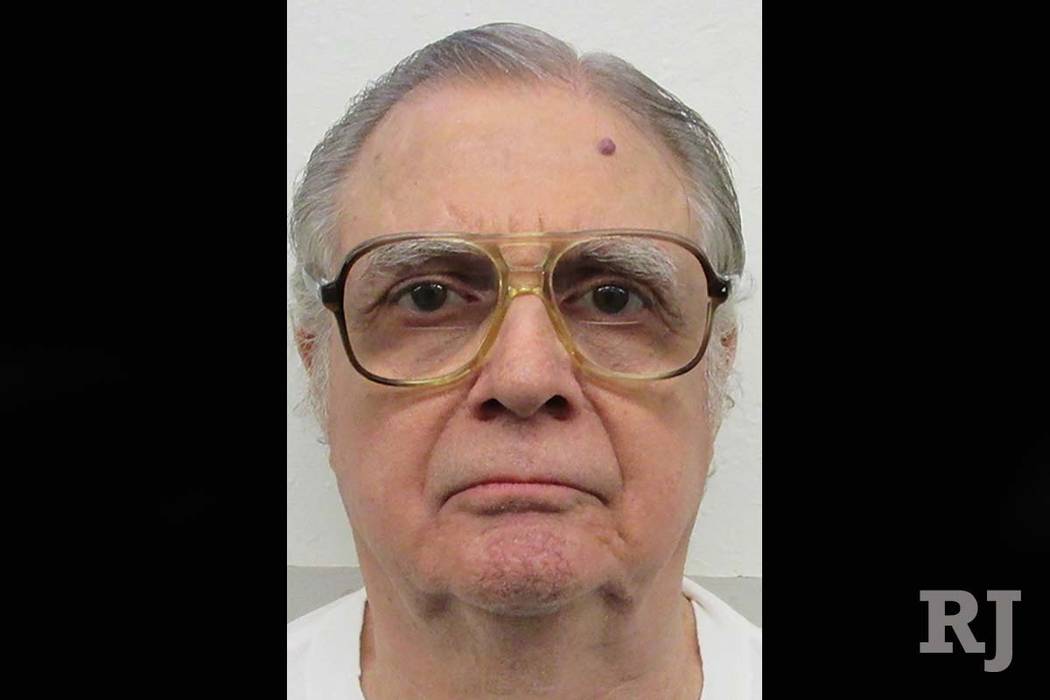‘Houdini’ of Alabama death row executed for murder-for-hire
ATMORE, Ala. — A man once dubbed the “Houdini” of Alabama’s death row after averting seven prior execution dates was put to death Friday, capping years of litigation challenging the humaneness of lethal injection.
Tommy Arthur, 75, was pronounced dead at 12:15 a.m. CDT Friday after receiving an injection at the state prison in Atmore, authorities said. Arthur was convicted of killing riverboat engineer Troy Wicker, who was fatally shot as he slept in his home.
“Thomas Arthur’s protracted attempt to escape justice is finally at an end,” Alabama Attorney General Steve Marshall said in a statement. “Most importantly, tonight, the family of Troy Wicker can begin the long-delayed process of recovery from a painful loss.”
Wicker’s two sons witnessed the execution but made no statement to the media.
Arthur maintained his innocence in recent media interviews as his attorneys had pressed the state’s governor to delay his eighth execution date to DNA test hairs collected at the crime scene. Arthur’s daughter, in a news conference held an hour after her father’s execution, repeated those calls saying there should be mandatory DNA testing of all evidence in all capital cases before any execution is carried out.
Sherrie Stone said she vacillated over the years over whether she thought her father killed Wicker. “At times, I was convinced he did. At times, I believed he was innocent. …. Now, I will never know the truth.”
Alabama Gov. Kay Ivey had refused the request to halt the execution. Ivey’s lawyer wrote in a letter to Arthur’s legal team that it was “never in dispute” that the hairs did not come from Arthur. General Counsel Bryan Taylor said jurors knew about the hairs and still convicted Arthur of capital murder.
The long-running legal saga began on Feb. 1, 1982, in the north Alabama town of Muscle Shoals along the Tennessee River.
Wicker’s wife Judy initially told police she came home and was raped by a black man who shot and killed her husband. After her conviction, she changed her story and testified she had discussed killing her husband with Arthur, who came to the house in makeup and an Afro-style wig and shot her husband. Arthur was in a prison work-release program at the time for the 1977 slaying of his sister-in-law, a crime he admits to committing.
Arthur had three trials, as his first two convictions were overturned. He escaped from jail while awaiting his second trial by shooting a jailer in the neck. Arthur purposely asked jurors to sentence him to death to open up more avenues of appeal.
In his final statement, Arthur appeared to choke back tears as he apologized to his four children. “I’m sorry I failed you as a father,” Arthur said. Prison officials said he was allowed to have a picture of his children in the lethal injection chamber, where he could see it as he lost consciousness.
Both sides of the death penalty debate have pointed to Arthur’s case as an example of what they see wrong in capital cases. Stone said her father was hampered in the early days of his case by inadequate legal counsel as he missed key filing deadlines. Attorneys with the state and victim’ advocates disparaged Arthur as a con man who used perpetual litigation — after a pro bono legal team took his case — to avoid the death sentence for years, causing torturous delays for Wicker’s remaining family.
Arthur had a total of seven execution dates postponed.
“He’s a Houdini,” said Janette Grantham, director of the Victims of Crime and Leniency, before the execution. Grantham said one of Wicker’s sisters died not long after Arthur’s previous execution date was stayed and that she believed Arthur, in a way, “killed” her too.
Arthur’s lawyers had filed a flurry of appeals trying to halt the eighth execution date. They argued the state planned to use an ineffective sedative, midazolam, and said the last inmate executed in Alabama was “awake” through the procedure because he coughed for the first 13 minutes of his execution and moved slightly after two consciousness tests.
The U.S. Supreme Court allowed the execution to proceed shortly before 11 p.m. Thursday, with Justice Sonia Sotomayor dissenting.
The state prison system began administering the lethal injection drugs around 11:50 p.m. Thursday, just before the death warrant was to have expired at midnight. Arthur’s hands appeared to twitch a few times, but he didn’t cough or lurch as some inmates have done in executions using midazolam.
As the execution date neared, Arthur had acknowledged in a phone interview Monday that his chance of another stay was diminishing.
“I’m terrified, but there’s nothing I can do,” Arthur told The Associated Press.

















